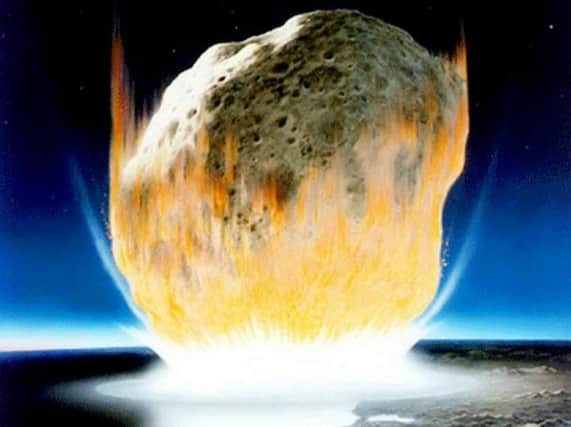Acidic seas killed off marine life during last mass extinction event


The study presents the first direct evidence that the Cretaceous-Paleogene, or K-Pg, die-off – sparked when by a massive asteroid crashed into the earth 66 million years ago – coincided with a sharp drop in the pH levels of the oceans. It confirms a long-established theory about the planet’s last great mass extinction event and how it affected the marine environment. The research team, from Scotland, England and the US, believe the findings could shed new light on the evolution of sea life.Dr James Rae, from the School of Earth and Environmental Sciences at the University of St Andrews, said: “For a long time people have thought there might be a decrease in ocean pH because the meteorite hit sulphur-rich rocks, which could add sulphuric acid to the atmosphere and ocean, but until now no one had any direct evidence to show this happened.”
EvidenceTo test the idea, the team analysed the composition of tiny fossil shells from before, during and after the K-Pg event.Measurements of boron isotopes in the shells allowed them to detect changes in the ocean’s acidity.Previous investigations had shown some marine calcifiers – animal species such as corals, molluscs, starfish and sea urchins, which develop shells and skeletons from calcium carbonate – were disproportionately wiped out in the mass extinction. The new study suggests greater ocean acidity may have prevented calcifiers from creating their shells, which would have had a major negative impact on other species.Co-researcher Professor Daniela Schmidt, of the University of Bristol, said: “This unique dataset provides evidence for ocean acidification affecting organisms which build shells and skeletons, with knock-on effects up the rest of the food chain.”
Advertisement
Hide AdAdvertisement
Hide AdThe K-Pg extinction began after an asteroid measuring up to 15km wide hit the ground in what is now the Gulf of Mexico 66 million years ago. The impact and its after-effects – including an extended period without sunlight – killed off around three quarters of all plants and animals.
WarningDr Rae warned that history was in danger of repeating itself due to climate change.He added: “The ocean is acidifying again today due to input of fossil-fuel CO2, so we have to worry about what this will do to marine life in the future.”
The study is published in the academic journal Proceedings of the National Academy of Sciences.